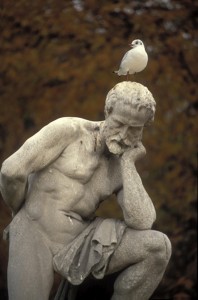 After writing yesterday’s blog post, I thought I would address another false accusation often made against Christians: that Christians are narrow-minded because they believe Jesus is the only way to God. In fact, it has become quite fashionable to believe all religions provide equally valid paths to God. In times past, those better educated than we are today did not make such silly errors.
After writing yesterday’s blog post, I thought I would address another false accusation often made against Christians: that Christians are narrow-minded because they believe Jesus is the only way to God. In fact, it has become quite fashionable to believe all religions provide equally valid paths to God. In times past, those better educated than we are today did not make such silly errors.
To believe one thing to the exclusion of something contradictory is not narrow-minded but rational. To believe two contradictory propositions is not being open-minded; it’s just stupid. If Mohammad said Jesus was only a prophet, but Jesus said He was God in human flesh, it would be irrational to say both were correct. And, of course, Jesus said no one could come to God except through Him (John 14:6), a statement that doesn’t leave any wiggle room for those desiring a religious pluralism. It’s not open-minded to pervert the words of the founders of religions to fit one’s own purposes; it’s dishonest.
My experience has been that Christians on a whole are more open-minded than unbelievers. Think about it: to have become a Christian one must have gone from one set of beliefs to a set of contrary beliefs. Such change does not occur unless one is open-minded. Conversion is a radical word, but it is absolutely necessary to becoming a Christian. However, the unbeliever, who has persisted in his unbelief, continuing to cling to the same belief system, has proven himself close-minded.
Between the Christian and the unbeliever, it is the Christian who has been demonstrably open-minded. GS

